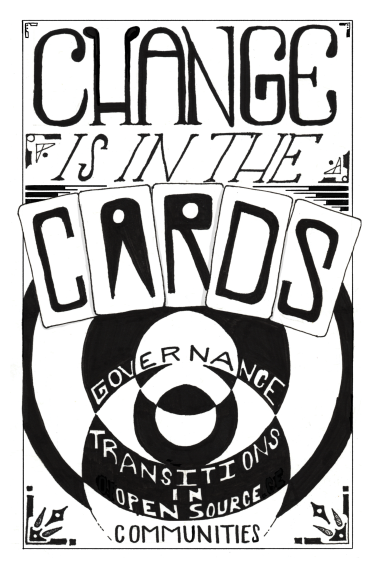Change Is in the Cards: Governance Transitions in Open Source Communities

Waves of uncertainty swell around you. They threaten to consume you with confusion as they crescendo. Where do you and your community turn?
Since its invention 15th-century Italy, tarot has been a technology of sense-making often used as a starting point for reflection, divination, and introspection. By consulting the cards and considering their relevance to the problems that face us, these technologies can help us forge answers to the existential queries that arise across a lifetime of complexity and change.
We invited practitioners from various open-source communities to use the tarot as a tool for sense-making about governance transitions they have witnessed or participated in. We consulted the tarot, pulling cards for each contributor and encouraging them to interpret these cards as they may—conjuring wisdom about community governance, especially in moments of liminality and transition.
Making open-source software is a way of collectively speaking new possibilities into existence. Programming and community-building both are forms of practical magic: the writing and implementation of codes, spells, or “magic words” that do things in the world. Governance is the stewardship or oversight of these processes. By demystifying certain aspects of it (and mystifying others!), we can help communities operate more effectively and democratically.
Our hope is that this zine will be an open-ended starting point—a forkable resource—that can help others navigate growth, transition, and all kinds of impasse, in software development and far beyond.
Edited by Adina Glickstein, Drew Hornbein, and Nathan Schneider. Design by Ritual Point Art & Divination. A project of the Media Economies Design Lab at the University of Colorado Boulder. This material is based upon work supported by the National Science
Foundation under Grant No. 2217654. Any opinions, findings, and conclusions or recommendations expressed in this material are those of the author(s) and do not necessarily reflect the views of the National Science Foundation.

